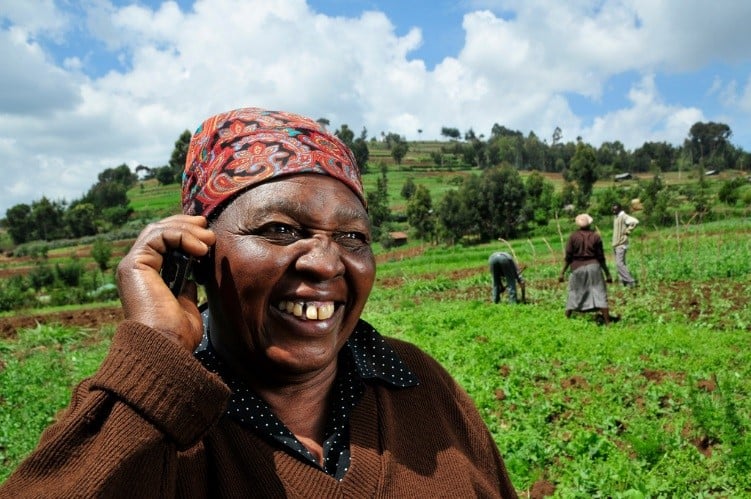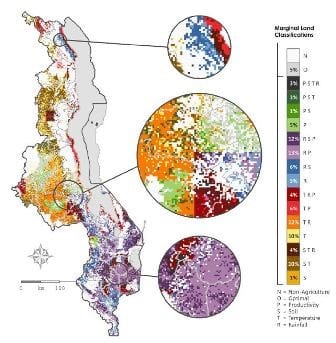Big data partnership: CGIAR analytics meets IVR to bring tailored advice to Malawi farmers
To run their farms as a business, smallholders need more access to relevant and timely information. Interactive Voice Response-based (IVR) technology has vast potential to meet their needs.

IVR delivers timely, accurate information via voice calls. Photo: Neil Palmer/CIAT
The CGIAR Platform for Big Data in Agriculture has forged a partnership to enhance the IVR-based farming advisory service, M’Chikumbe, to reach hundreds of thousands of smallholder farmers in Malawi, with advice tailored to the farm, season, and crop.
According to the UN Food and Agriculture Organization, approximately 2 million farming families tend to 4.5 million hectares of land in Malawi.
Maize is the primary crop. The output last year was estimated at 3.5 million tons, but production this year is predicted to decline for this year between 10 and 15 percent compared to 2017 – mainly due to earlier dry spells and poor rainfall.
“It is absolutely the most concrete and applied opportunity I have ever seen for delivering tailored advice to hundreds of thousands of farmers at a scale and in the time they need it,” said Brian King, Coordinator of the CGIAR Platform for Big Data in Agriculture.
“M’Chikumbe is an interactive voice response-based advisory service, and the kind of ag analytics CGIAR generates can make it relevant to the whole national territory of Malawi, down to the farm scale.”
The partnership will see Viamo, Michigan State University, Lilongwe University of Agriculture and Natural Resources and CGIAR working together to link leading-edge agricultural analytics with the massive communications channel.
The AirTel/Viamo M’Chikumbe service, which already has 726,000 registered farmers offers a powerful way to interact directly with individual farmers via their mobile phones and provide tailored guidance across whole landscapes, districts, or the entire country.
The partners feel that this access to tailored information will meet a vast unmet demand, and as a result are targeting over 1 million farmers as active users over the next two agricultural cycles, informing farming and land use practices in service of farmer and household well-being.

Michigan State University and partners are using remote sensing-based estimates and digital elevation models to integrate and leverage data on precipitation, temperature, soils, land use, and historic productivity to delineate favorable areas and key limiting factors for maize production for the whole national territory of Malawi. This informs technical advice building on data from nearly a decade of on-farm research funded by the U.S. Agency for International Development (USAID) under the AfriaRISING research program.
By harnessing the IVR-based agriculture advisory service M’Chikumbe, the project will extend tailored agronomic advice to these farmers in real time, through their mobile telephones. M’Chikumbe aims to transform smallholder farmer’s livelihoods by providing critical information while promoting improved financial literacy and cash security awareness.
The project partners will target maize farmers who require site- and season-specific guidance on fertilization and generally accepted good farming practice. Once registered to the service, a farmer will have information specifically tailored to suit their preferences at any time, via IVR calls and short text messages.
While activity levels and repeat usage remain limited due to user experience issues around service navigation and product education, M’Chikumbe has grown steadily and now has over 726,000 registered users. The project is optimistic that the ability to deliver timely, tailored advice should help stimulate more active use and accelerate the growth in subscriber numbers.
The project was selected for a startup grant among over 400 submissions to the Partnership for Green Growth and the Global Goals (P4G), highlighting its potential as a model for large-scale sustainable food system transformations bridging public, private, and non-profit capabilities. The Project was highlighted at the recent P4G Copenhagen Summit featuring 5 heads of state and executives from several global firms.
Marianne McDade
Cali, Colombia




